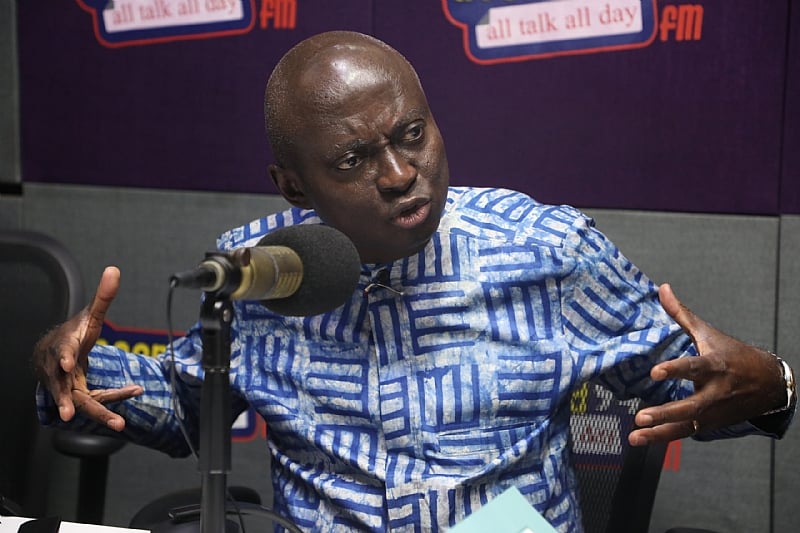The legal proceedings against Kwabena Adu Boahene, the former head of Ghana’s National Signals Bureau (NSB), have ignited a firestorm of controversy, with his lead counsel, Samuel Atta Akyea, vehemently denouncing the prosecution’s handling of the case as a blatant miscarriage of justice. Akyea’s primary contention centers on what he perceives as a flagrant disregard for procedural fairness, arguing that the prosecution is manipulating legal technicalities to unjustly curtail his client’s freedom. This sentiment was amplified after the Accra High Court ruled to remand Adu Boahene into the custody of the Economic and Organized Crime Office (EOCO) for seven working days, a decision that has drawn sharp criticism from the defense. The court’s rationale for the remand is to afford the prosecution sufficient time to finalize witness statements, a justification that Akyea dismisses as a thinly veiled pretext for further delaying the proceedings and prolonging his client’s detention.
The charges against Adu Boahene and his co-accused, including his wife, Angela Adjei Boateng, Mildred Donkor, and Advantage Solutions Limited, paint a picture of intricate financial maneuvering and alleged misappropriation of state funds. The eleven counts leveled against them range from stealing and money laundering to defrauding by false pretenses and willfully causing financial loss to the state. The core of the prosecution’s case revolves around the alleged transfer of GHS 49.1 million (equivalent to approximately $7 million) from the NSB’s coffers into Adu Boahene’s personal account. The prosecution contends that these transactions were fraudulently disguised as payments for cyber defense software procured from an Israeli firm, a claim that the defense is expected to challenge vigorously. The substantial sum involved underscores the gravity of the allegations and the potential ramifications for both the accused and the NSB.
Atta Akyea’s metaphorical assertion that he refuses to “eat a meal which is not cooked” encapsulates his disapproval of what he sees as the prosecution’s premature and inadequately prepared case. He argues that rushing the proceedings without a comprehensive body of evidence jeopardizes the integrity of the legal process and undermines the fundamental rights of the accused. This sentiment reflects a broader concern about the potential for prosecutorial overreach and the importance of ensuring a fair and balanced legal process, regardless of the severity of the allegations. The defense’s strategy will likely focus on meticulously scrutinizing the prosecution’s evidence, challenging its validity, and highlighting any procedural irregularities that may have occurred.
The court’s decision to schedule the next hearing for May 13, 2025, introduces a significant delay into the proceedings, a development that adds another layer of complexity to the case. This extended timeframe raises concerns about the potential impact on the memories of witnesses, the preservation of evidence, and the overall fairness of the trial. The defense will undoubtedly argue that such a lengthy delay prejudices their client’s right to a speedy trial, a fundamental principle of justice that ensures the accused are not subjected to undue hardship and uncertainty while awaiting their day in court. The prosecution, on the other hand, may justify the delay as necessary to thoroughly investigate the complex financial transactions involved and gather all relevant evidence to present a comprehensive case.
The protracted nature of the legal battle ahead promises a meticulous examination of the evidence, intricate legal arguments, and potentially dramatic courtroom confrontations. The defense will likely challenge the prosecution’s narrative at every turn, dissecting the financial records, scrutinizing the witness testimonies, and questioning the motives behind the accusations. The prosecution, in turn, will strive to present a compelling case that establishes a clear link between Adu Boahene and the alleged financial improprieties, demonstrating that the transactions were not legitimate business dealings but rather a deliberate scheme to defraud the state. The court’s role will be paramount in ensuring a fair and impartial trial, carefully weighing the evidence presented by both sides and ultimately determining the guilt or innocence of the accused.
The Adu Boahene case stands as a stark reminder of the fragility of public trust and the importance of accountability in positions of authority. The allegations of misappropriation of state funds, if proven, would represent a significant breach of that trust and underscore the need for robust oversight mechanisms to prevent such occurrences. The outcome of this legal battle will have far-reaching implications, not only for the individuals involved but also for Ghana’s ongoing efforts to combat corruption and strengthen its institutions. The public will be watching closely as the legal drama unfolds, eager to see whether justice will be served and whether the alleged perpetrators of this financial scandal will be held accountable for their actions.


